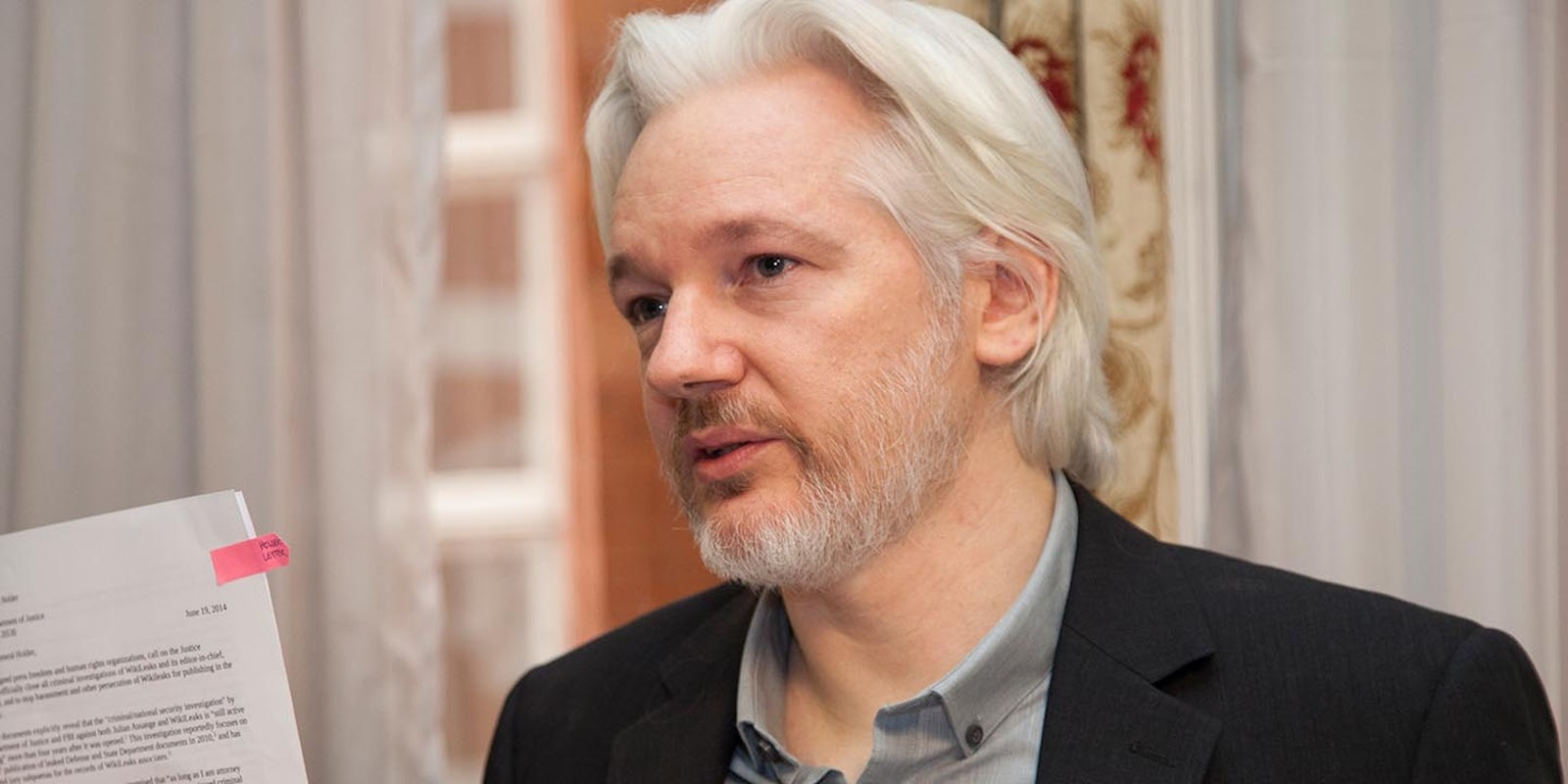Julian Assange, the former hacker and controversial figure at the center of WikiLeaks, is in the news again. Why? Is he finally going to see daylight? Will he ever be formally charged with a crime? Here’s everything you need to know.
Who is Julian Assange?
Assange, 44 and originally from Australia, is the editor-in-chief of WikiLeaks, an online collection of leaked and often classified government documents. Its biggest release was probably in 2010, when, in association with the New York Times and German news outlet Der Spiegel, WikiLeaks famously published 92,000 U.S. military cables pertaining to the wars in Iraq and Afghanistan.
Where is Julian Assange?
Assange has lived in the Ecuadorian embassy in London, England for the past five and a half years. He was granted political asylum by Ecuador in 2012, but has been unable to leave the embassy.
Why not?
He’s wanted for questioning in an alleged rape case in Sweden. The U.K. claims that Assange is avoiding “lawful arrest” by staying in the embassy, and that the U.K. has a legal obligation to extradite him to Sweden upon his arrest, as his search warrant there is still outstanding. Assange fears his extradition to Sweden could eventually lead to an extradition to the United States for his role in WikiLeaks. Until recently, there was a British police officer posted outside of the Ecuadorian embassy, waiting to arrest Assange should he walk out.
Why is he in the news?
Assange filed a complaint regarding his situation with the United Nations in 2014. On Thursday, the U.N. officially announced that they determined his detainment was “arbitrary” and that he was being deprived of his liberty. “The Working Group recognized that Mr. Assange is entitled to his freedom of movement and to compensation, a U.N. statement said.
BREAKING: Sweden’s foreign ministry: UN panel concludes that Assange’s detention is `arbitrary’
— The Associated Press (@AP) February 4, 2016
So, what happens now?
It appears that the U.K. government has rejected the U.N.’s decision.
Government spokesman: We reject UN ruling on #Assange – arrest warrant has been issued & we are committed to our obligations in that regard
— Sky News Breaking (@SkyNewsBreak) February 5, 2016
Carey Shenkman, a civil rights attorney with the Center for Constitutional Rights who represents Assange, told the Daily Dot: “That shocks me, if that is their position. One, Sweden and the U.K. submitted arguments, they participated, and after the 16-month, independent review of the case—which took into account all of the evidence they submitted—now there’s a decision. It’s strange to say you’re going to play, but not abide by the outcome.”
The U.N. doesn’t have direct authority to force the U.K., a founding member, to act, but it makes Assange’s situation diplomatically awkward. And it undermines the U.N.’s authority when it condemns the actions of other countries around the world. For the time being, though, Assange seems still confined to that embassy.
Photo via Cancillería del Ecuador / Flickr (CC BY-SA 2.0)


